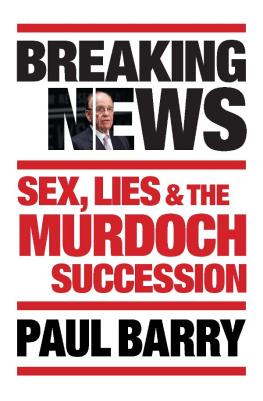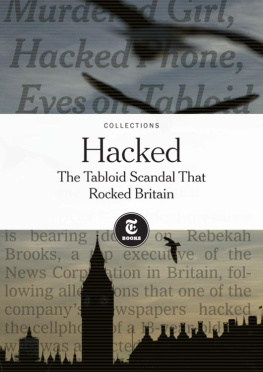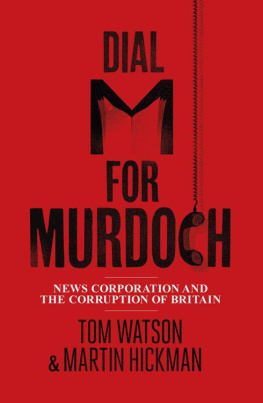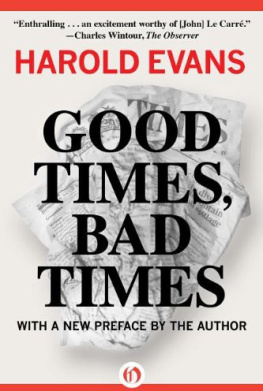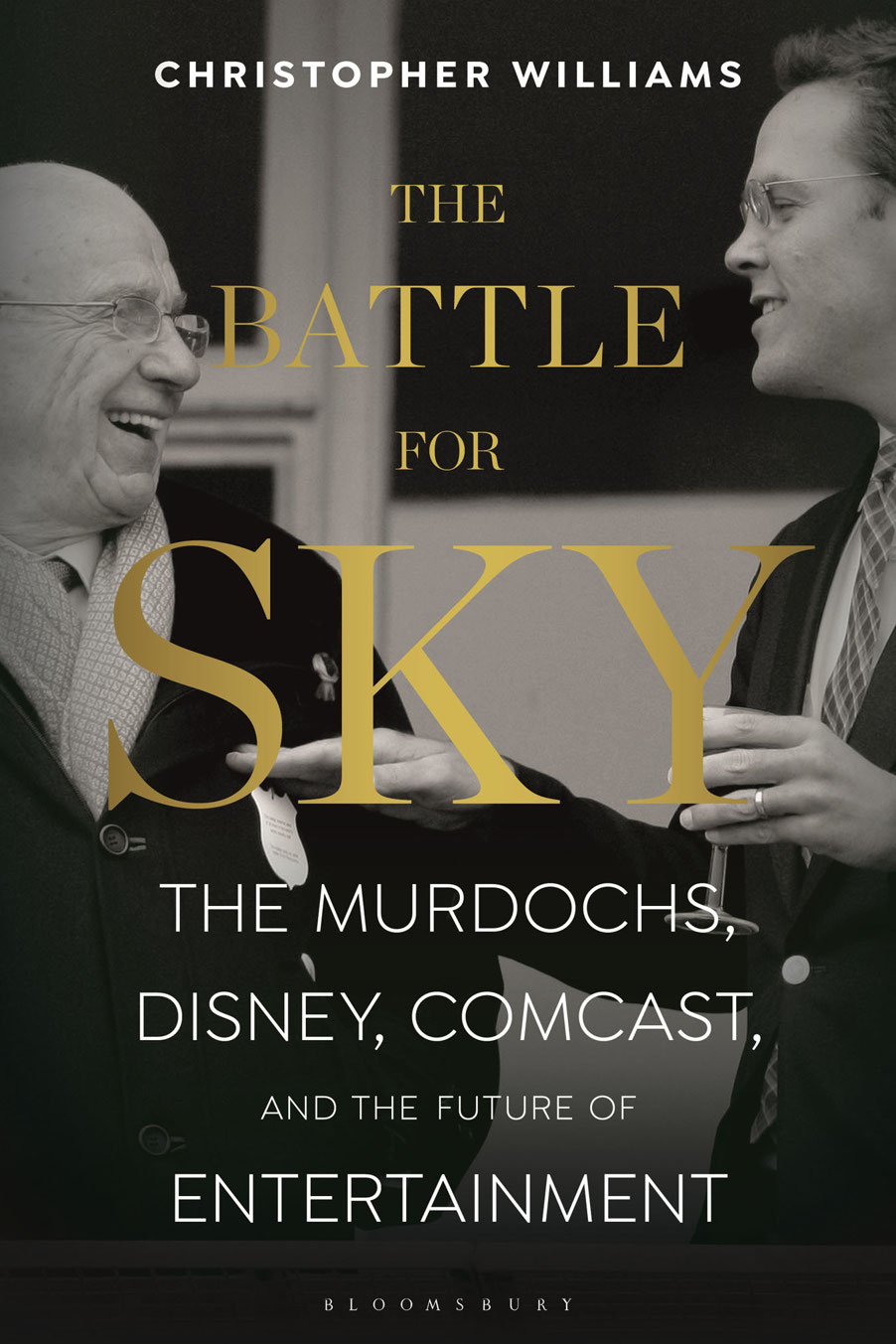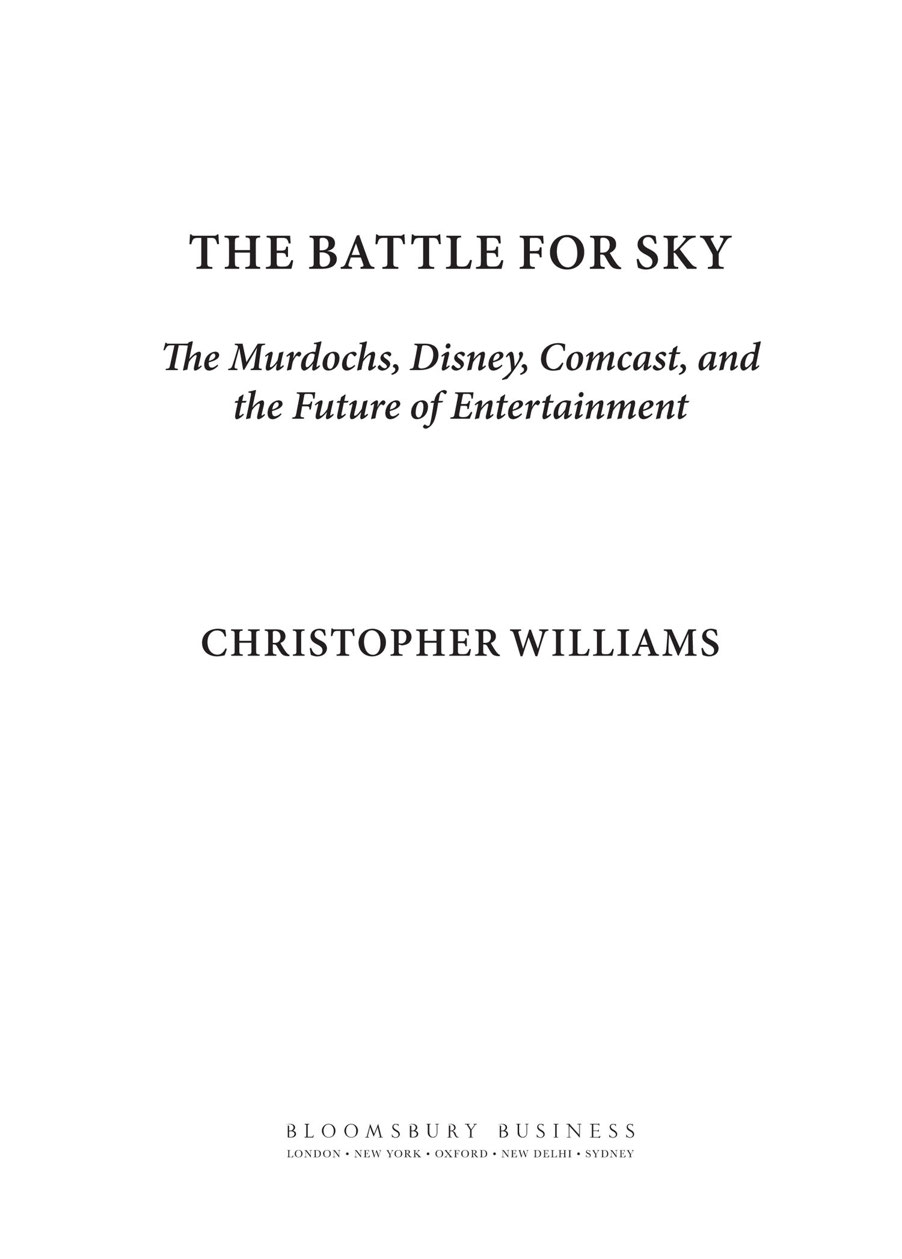THE BATTLE FOR SKY
CONTENTS
10 The Whole Organisation Was in a State of Shock
11 Were Too Big and They Dont Like It
12 Netflix Is Just HBO with a Decent IT Department
13 The Moment Has Come
14 James Fought Like A Tiger. Again.
15 Protect the Content Budget
16 Pivoting at a Pivotal Moment
17 The Knowledgeable Cab Driver
18 The Biggest and Most Dangerous Gamble of All
I walked down a steep flight of steps to the basement. Paul Dacre, the editor of the Daily Mail, was waiting for me at the bottom. Apart from the two of us, the restaurant was deserted. We shook hands, found a pair of seats at the nearest table and got down to business.
Under any normal circumstances, if someone had suggested I take a secret meeting with the editor of the Daily Mail, I would have laughed in their face. There was no newspaper, magazine or website more relentless or immoderate in its criticism of the BBC something that tended to get under your skin if, like me, you were the Director-General of the said corporation. And even if one could get over ones suspicion, what purpose could such a meeting serve? It was impossible to imagine any issue on which the Mail and the BBC could see eye to eye.
Or at least impossible until Rupert Murdoch supplied one. In June 2010 his company News Corp, already the biggest shareholder in BSkyB, announced its intention of buying the remaining shareholders out and taking full ownership of Sky.
The rest of Fleet Street, and the UKs other major broadcasters including ITV, Channel Four and Channel 5 were appalled. In addition to its Sky holding, News Corp owned a set of national newspapers. Its rivals feared that complete control of Sky would allow the company to dominate the market in news, entertainment and advertising. In their view, any other player who relied on any part of this market for revenue would inevitably be squeezed.
At the BBC, we had less to lose commercially. But like many others in the worlds of media and politics, we had profound concerns about the potential loss of plurality and impartiality in British journalism. Over the years, Sky News had earned a first-class reputation for fairness and accuracy. How could that be guaranteed if the News Corp takeover went ahead? Rupert Murdoch clearly relished the sway he enjoyed in British politics. What would happen to democracy if that influence was extended beyond newspapers to TV?
In August 2010, as this book recounts, I spoke out in the MacTaggart lecture at the Edinburgh TV Festival about the multiple risks of the News Corp bid for Sky. The speech was widely reported, and I assumed it would be the last public statement I would make on the topic. But in early September, we received a confidential phone call from a senior Liberal Democrat figure in Britains new coalition government.
He and his colleagues were convinced that, in return for the support of his newspapers in the UKs recent election, the Conservative prime minister and chancellor, David Cameron and George Osborne, had reached some kind of understanding with Rupert Murdoch. Lib Dem ministers feared that the Tories would try to force the Sky takeover through without proper scrutiny and in particular without a referral to the industry regulator, Ofcom.
It was essential, he said, that maximum external pressure be applied to Downing Street. The rest of British media were getting together to write a joint letter to the Business Secretary, which would be simultaneously published in multiple national newspapers. If the BBC was prepared to join this chorus of concerned voices, it could make all the difference.
It was this call that led to the meeting with Paul Dacre in that subterranean West End restaurant. I listened carefully to his arguments and, in subsequent conversations, to those of the other organisers of the letter. They sent us the draft letter. We suggested changes. The adjustments were agreed. And then I signed it.
The case against signing was clear. Although the BBC is not bound to remain impartial in debates about media policy, it generally avoids becoming entangled in arguments between rival commercial interests let alone rival ministers. The Times, one of News Corps British papers, published a leader calling my campaign against the takeover a serious error. One unnamed Sky executive is quoted in this book as saying that adding my name to the letter was a stupid mistake.
I suspect that most of the BBC Trust, the Corporations governing body at the time, concurred with that judgement. They were understandably furious when they discovered that Id signed the letter without consulting them. I hadnt told them because I knew theyd almost certainly forbid me from signing it. It was a provocative in some ways rather brutal way to treat a group of loyal and thoughtful supporters of the BBC, but Id concluded that to sign was not just in the BBCs own institutional interest, but the wider public interest. Signing might not be politic. It was in my view the right thing to do.
The letter was published on Monday 11th October 2010. Shortly thereafter, the Government referred the takeover to Ofcom, which in due course recommended a full referral to the Competition Commission, a body with the power to block the deal entirely. The bid was far from dead, but official approval was now going to be more protracted and uncertain than its proponents led by Ruperts son, James Murdoch could have wished or expected.
Meanwhile, in a bizarre twist, exactly one week after the letter was published, we found ourselves making a desperate phone call back to the Liberal Democrats, beseeching them to help us reverse a separate decision by the government to stop compensating the BBC for the free television licences enjoyed by the over-75s. At stake were many hundreds of millions of pounds. Now it was the Lib Dems turn to stick their necks out which indeed they did, playing a critical role in helping to get that decision reversed.
Ive recounted this episode at some length because its so characteristic of the broader story of Sky and British political and media establishment which is told so compellingly by Christopher Williams in this book. Its a story of a seemingly unstoppable commercial force colliding with an immovable political and cultural object. Rupert Murdoch had conceived of Sky as a broadcaster that could flourish and grow precisely because it would operate outside the web of subsidy and state interference which he believed spoiled and smothered the rest of British TV. The paradox was that at least for as long as he, his son James, and their company were involved in it Sky would remain intensely and unavoidably political. Release from politics, something which many Sky executives would come to yearn for, could be achieved only when the Murdochs themselves relinquished their ownership entirely.
I was an unashamed opponent of the takeover bid. But dont assume from my stance on that topic that I was generally an enemy of BSkyB. On the contrary, I believed that its impact on British television had been almost entirely positive.
Rupert Murdoch was right: the world of broadcasting with which I grew up needed disrupting. Viewers lacked choice, lacked significant access to live sport. TV production was almost entirely in the hands of an in-house BBC and ITV oligopoly. The broadcasters held most of the cards, the public almost none. This tightly controlled industry had produced some of the best TV in the world. Rupert Murdoch was not the only person to realise that advances in technology meant that its days were now numbered. But no one was bolder or risked more than he was in turning a theoretical vision of the future of broadcasting into a living, breathing reality.

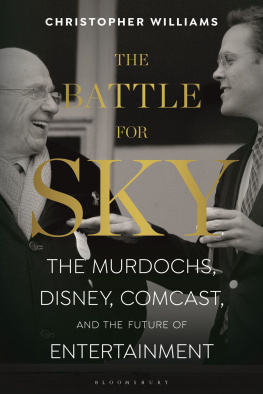


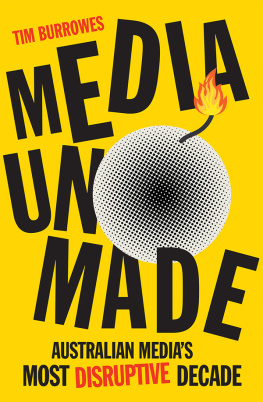
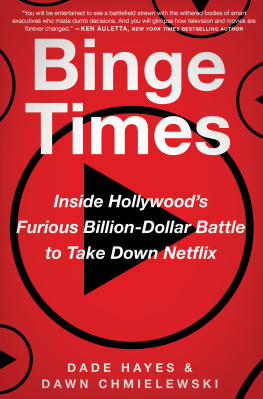
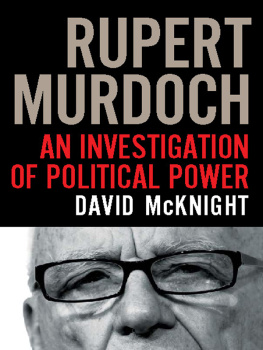
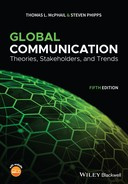
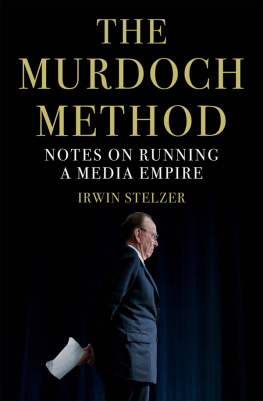
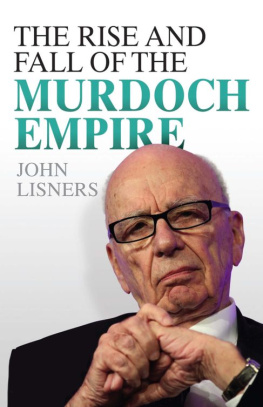
![Greenwald Robert - Outfoxed : [Rupert Murdochs war on journalism]](/uploads/posts/book/99754/thumbs/greenwald-robert-outfoxed-rupert-murdoch-s-war.jpg)
